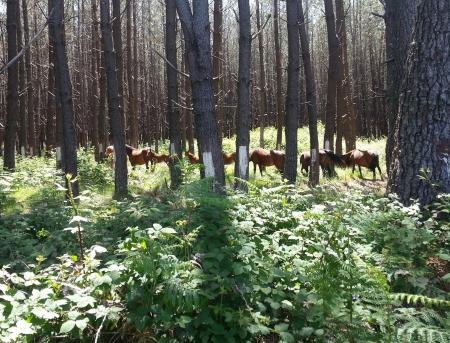
Objective:
Some aspects contribute to the increase of resin tapping costs and, hence, to the reduction of resin yield, namely: the limitation on the diameter of the trees to be tapped imposed by the Portuguese legislation; low stand densities; the necessary control of understory vegetation. Hence, it is essential to evaluate if and how some pine forest management parameters affect the total production of pine resin so it can be increased through silvicultural practices and, thus, compensate for the rise in some costs associated with the resin activity.
Context:
When enforced, resin tapping activity constitutes an additional income for landowners but is rarely considered in forest management plans for pine stands. Thus, silvicultural practices are applied to pine stands without accounting for their impact on resin production. However, the increased knowledge of how those practices influence the amount of resin produced by the tree will allow their introduction to the forest management plans of pine stands, leading to an increase in resin productivity and thus the stands profitability.
Contacts:
Maria Emília Silva, emil_ms@utad.pt
Carlos Loureiro, carlos.a.r.loureiro@gmail.com
Jani Pires, janipires@gmail.com
Further information:
Silva ME, Loureiro C, Gaspar MJ, Pires J, Ribeiro M, Loureiro C, Coutinho JP, Santos E, Carvalho A, Brito JL, Salgueiro A, Lousada JL, 2018. RESIMPROVE - Desenvolvimento de processos de produção e extração de resina de pinheiro para a melhoria da eficiência, racionalização e expansão da atividade. ISBN 978-989-704-264-5